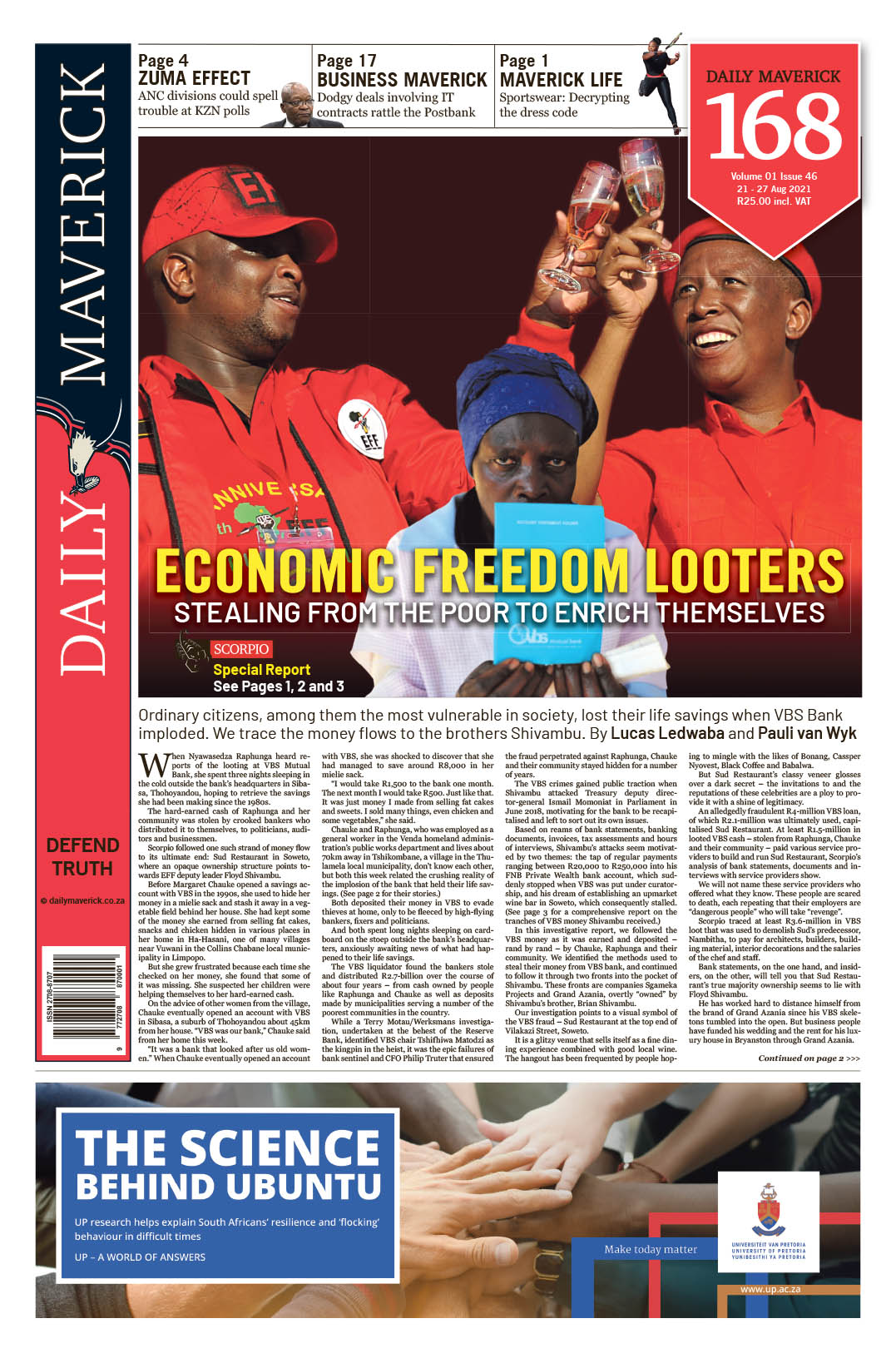First published in the Daily Maverick 168 weekly newspaper.
My favourite season is winter. I love the cold for its comforting food and its subdued fashion. The summer heat tends to invite rising tempers and mischief. I have long held the belief that humans are better behaved in winter, more concerned about keeping warm than breaking hearts. Also winter means the absence of fierce Joburg thunderstorms, which I am deathly frightened of.
For the past year and a half, however, the virtue of my favourite season has been distorted by Covid-19’s waves of death and illness. As summer approaches with hopes of some respite from Covid-19, I am dreading not just the severe thunderstorms but the heat and what it will do to our bodies, communities and country. The recently released report by the Intergovernmental Panel on Climate Change says that if we do not scale up our efforts against climate change, we are doomed. But the impoverished, who tend to be brown and black people, are more doomed.
As Vann R Newkirk II wrote in The Atlantic last year: “Heat bears down most on the global working poor and developing countries, while their wealthier planetmates are able to evade the worst of the warming.
“[C]onsumption by those wealthier folks helps create the warming, which, in turn, robs the poor of opportunity and walls off economic mobility… [Heat] will destroy some bodies, while others are spared. It will spark uprisings and set the stage for conflict, both between and within nations.”
In SA, the majority of the “working poor” are black people. It is black people on whom the sun beats down the most on the streets, construction sites, farms and fields.
It is black people who live in shacks made of heat-absorbing zinc, which turn homes into furnaces. Climate change is an acutely black issue too.
Over this winter, my anxiety has risen with reports of northern hemisphere heatwaves with record temperatures of 49.6℃ over western Canada and the US. “July and August 2021 have been marked by extreme weather conditions – from drought and fires in southern Europe, Russia and North America to severe flooding in western Europe, Africa and Asia. South Sudan and Nigeria have experienced recent flooding. And research predicts that people in countries like Nigeria, Ethiopia and Haiti will see a greater total increase in heat waves than the average US citizen will,” Deutsche Welle reported. All this has left me wondering how prepared our country is for extreme weather.
When Cape Town was hit by a water shortage a few years ago, it was the impoverished who were hit the hardest as they already live under substandard conditions of squalor.
Yet it is the impoverished who are least likely to have information on climate change and access to mechanisms that enable adaptation to climate change.
Research shows the importance of conducting additional research and engaging with communities that will be most affected by climate change’s adverse impacts.
Is such engagement happening? As recently as June 2021, the Institute for Security Studies has warned that, “without urgent adaptation measures, South African cities and towns will be hard-hit, leaving millions exposed and vulnerable to climate change”.
Another study Newkirk refers to found that poor neighbourhoods tend to be hotter than wealthy neighbourhoods, which are much more likely to have tree cover and vegetation to create shade and modify airflow.
Life in hot neighbourhoods is associated with higher mortality from heat waves.
Unequal exposure to heat and pollution weakens black people’s bodies and assaults their hearts, lungs, kidneys and blood vessels. It makes them more vulnerable to mortality from all causes. If we do indeed face a heat wave this coming summer, how will it affect bodies already vulnerable to Covid-19?
A lot of black people remain uninformed and uneducated about the effects of climate change – yet it impacts them the most.
We do not make the connection between our illnesses, everyday struggles and climate change. We think climate change only presents itself in big events such as floods or water shortages.
We need to talk about the more insidious effects of climate change on our bodies, jobs, homes and cost of living. Perhaps if we did, the matter would be viewed with a sense of greater urgency than a catastrophe that is for future generations to deal with.
As Newkirk points out, the effects of climate change today “plays out along existing lines of inequality and injustice. The enemy is human-engineered inequality, as powerful – and as vulnerable – as it has always been.” DM168
This story first appeared in our weekly Daily Maverick 168 newspaper which is available for R25 at Pick n Pay, Exclusive Books and airport bookstores. For your nearest stockist, please click here.
















 Become an Insider
Become an Insider
Comments - Please login in order to comment.